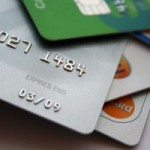Streewise: A Borrowed Life
 A week after pulling into town, I had blown through $1500 entirely on credit, trying to recreate the comforts I’d known at home. After a month, it was $2000. Now, nearly a year later, it’s $3600. I’ve tried to justify each purchase to myself: the brand new bike was an investment, the suit was for job interviews, but honestly, I don’t think I could tell you where half that money went.
A week after pulling into town, I had blown through $1500 entirely on credit, trying to recreate the comforts I’d known at home. After a month, it was $2000. Now, nearly a year later, it’s $3600. I’ve tried to justify each purchase to myself: the brand new bike was an investment, the suit was for job interviews, but honestly, I don’t think I could tell you where half that money went.
Credit card debt has been the biggest wakeup call I have gotten since my Existential Crisis. Considering the economy as of late, I’m pretty sure everyone else heard it too. I believe there is a lot of entitlement in American culture and that it is reflected in our use of credit. I believed I deserved a brand new racing bike when I could have gotten a decent used bike for half as much.
I can’t speak to making great strides towards paying off debt. Like I said in my first post, you can’t cut corners in a circular room. However, I can stay afloat. I pay the minimum every month, more if I can afford it, but it doesn’t happen often.
As a result of my low amount of available credit and the present economic situation, I cannot get a credit limit increase nor a new card. Because of this, I have been forced to live a cash-only life. Other people hide their credit cards or freeze them in blocks of ice. I can leave mine in my wallet because there’s no money to be used on them anyway.
A cash-only existence has its benefits. For example, the local farmer’s market and co-ops only accept cash (and the co-op takes EBT/food stamps), so I have even more of an excuse to eat fresh, local, and often organic produce. I can set aside specific piles of money for groceries and household goods. Having leftover change has forced me to start saving (in a Mason jar, but when it’s full I plan on transferring it into an online savings account).
Credit cards can be a wonderful tool. I put my groceries on credit for two months before I got my first paycheck. Even after I pay my cards off, I’m probably still going to keep my accounts open. Living entirely without credit is a luxury some people (including myself) cannot afford. I do not have the cash for a safety net, and I probably won’t under my current circumstances.
Still, a credit-based life is like the bastard lovechild of a bad relationship and indentured servitude, so it shouldn’t be the only resource you should have on hand in case of an emergency. A later post will focus more on becoming aware of the resources around you, accessing them, and challenges that might come up.
Photo credit: stock.xchng.


Andrew: Since you don’t have much of an emergency fund, it’s smart to keep a credit card on hand that is below the credit limit. Keeping one or two in the mix will also add points to your credit score… and over time, this is a number that will improve as you pay off your debt.
Andrew, I am a big supporter of cash-only for the day to day things like groceries, etc. But Nina makes a good point – you definitely need to have some sort of “safety net” in case of an emergency. What happens if your cat gets sick and you wind up with a $400 vet bill? Some things can’t be helped and in those cases, credit cards can have some real advantages. But the discipline required to keep your credit card available for emergency purposes only is a real tough thing to develop.